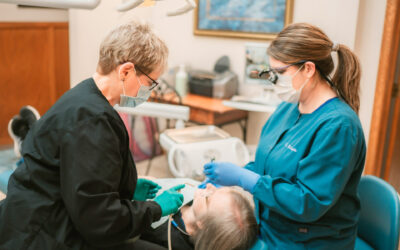The relationship between nutrition and oral health is a vital yet often overlooked aspect of overall well-being. The food choices we make significantly impact our teeth and gums, either positively or negatively. A balanced and nutritious diet not only supports general health but also plays a crucial role in maintaining strong teeth, healthy gums, and a radiant smile. In this article, we will delve into the connection between nutrition and oral health, drawing insights from guidelines provided by the American Dental Association (ADA) and the World Health Organization (WHO). By understanding the importance of proper nutrition and recognizing foods that are detrimental to dental health, we can make informed choices that promote long-term oral well-being.
The Impact of Nutrition on Oral Health
Nutrition plays a fundamental role in maintaining optimal oral health. A well-balanced diet provides essential vitamins, minerals, and nutrients that support the growth and development of teeth and gums. Conversely, poor dietary choices can lead to tooth decay, gum disease, and other oral health issues. Here’s how nutrition impacts oral health:
- Tooth development and strength: Proper nutrition during childhood and adolescence is crucial for the development and strength of teeth. Essential nutrients like calcium, vitamin D, and phosphorus contribute to the formation of strong enamel and healthy tooth structure.
- Gum health: A diet rich in vitamins, minerals, and antioxidants supports gum health and helps prevent gum disease. Vitamin C, in particular, is vital for collagen production, which maintains the integrity of gum tissues.
- Saliva production: Adequate hydration and a well-balanced diet stimulate saliva production. Saliva helps wash away food particles, neutralizes acids, and contains beneficial substances that protect teeth against decay.
- Immune system support: Proper nutrition strengthens the immune system, allowing it to effectively combat oral infections and reduce the risk of periodontal diseases.
Foods to Limit or Avoid for Good Oral Health
While a healthy diet is essential for oral health, it’s equally important to be aware of foods that can be harmful to teeth and gums. The ADA and WHO have identified certain food items to limit or avoid for good oral health:
- Sugary and acidic foods: Excessive consumption of sugary and acidic foods can lead to tooth decay and erosion. Sugary snacks and beverages, including candies, sodas, fruit juices, and sports drinks, provide an ideal environment for bacteria to produce acids that attack tooth enamel. Limiting intake and practicing good oral hygiene after consuming such foods is crucial.
- Sticky and chewy foods: Foods that are sticky and chewy, such as caramel, dried fruits, and chewy candies, can linger on teeth for extended periods, increasing the risk of tooth decay. Ensure thorough brushing and flossing after consuming these foods.
- Starchy and processed foods: Starchy foods like chips, crackers, and white bread can break down into simple sugars in the mouth, contributing to the formation of plaque. Processed foods, which are often high in sugar, salt, and unhealthy fats, can negatively impact oral and overall health.
- Acidic beverages: Acidic beverages like citrus juices, energy drinks, and carbonated sodas can erode tooth enamel over time. Limit consumption and use a straw to minimize contact with teeth.
- Alcohol and tobacco: Excessive alcohol consumption and tobacco use, including smoking and chewing tobacco, can lead to oral cancer, gum disease, tooth loss, and a host of other dental issues. Quitting or minimizing these habits is crucial for oral health.
- Caffeinated beverages: While moderate consumption of coffee and tea is generally fine, excessive intake can cause tooth staining. Adding sugar or creamers can further contribute to dental problems.
- Hard and ice-cold foods: Biting on hard foods like ice cubes, popcorn kernels, or hard candies can cause tooth fractures or damage dental restorations. Avoid chewing on ice and exercise caution with hard foods to prevent dental emergencies.
- Highly acidic fruits: Citrus fruits like lemons, oranges, and grapefruits are rich in vitamin C but can be acidic, which may erode tooth enamel. Enjoy these fruits in moderation and rinse your mouth with water afterward.
- Energy and sports drinks: Energy and sports drinks may be marketed as beneficial, but they often contain high levels of sugar and acids that contribute to tooth decay and erosion. Choose water or milk as healthier alternatives.
Proper nutrition is an essential component of maintaining optimal oral health. By following the guidelines set forth by the ADA and WHO, we can make informed choices about the foods we consume. Limiting or avoiding sugary, acidic, sticky, and processed foods helps reduce the risk of tooth decay, gum disease, and other oral health issues. Instead, opt for a well-balanced diet that includes fruits, vegetables, lean proteins, whole grains, and dairy products. These foods provide vital nutrients, strengthen teeth and gums, and support overall health.
In addition to dietary choices, practicing good oral hygiene is paramount. As we’ve mentioned in other articles, brushing twice a day with fluoride toothpaste, flossing daily, and scheduling regular dental check-ups are essential habits for maintaining oral health.
Remember, while proper nutrition is crucial, it should complement, not replace, professional dental care. Consult with your dentist for personalized recommendations based on your oral health needs. By embracing a nutritious diet and adopting excellent oral hygiene practices, you can pave the way for a lifetime of healthy smiles and overall well-being.



